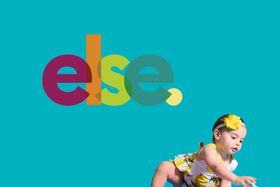Things to Do When Your Baby Is Refusing the Bottle
Is your teething baby refusing the bottle? Learn about common reasons and effective strategies to help your little one overcome bottle refusal in this article.
Published May 28, 2024

As new parents, it can be both confusing and concerning when your baby, who once fed happily, suddenly starts refusing the bottle. You might be flooded with a myriad of questions: Is it something to do with the milk? Are they unwell? Do they just not like the bottle anymore?
This article delves into the possible reasons behind this behavior and offers strategies and insights on how to make feeding times smoother and more enjoyable for both of you.
» Struggling with your toddler's feeding routine? Learn how to create a balanced and fun meal schedule
Reasons Why Your Baby is Refusing the Bottle
Understanding why your baby is refusing the bottle can be both confusing and concerning for parents; let's delve into some common reasons why they won’t eat.
» Discover expert advice on what to do when your toddler won’t drink milk
Illness
Babies react differently to illness; some may find swallowing painful due to conditions like a cold or sore throat and might reject the bottle, while others may actually find solace in the act of sucking and clinging to their bottles more. It's not always a clear-cut reaction; a decrease in appetite can occur, but the comfort of sucking may still appeal to them.
New Experiences
Babies are curious beings, constantly taking in the world around them. If you've recently introduced solid foods, a new feeding routine, or even a new environment, it might temporarily disrupt their willingness to take a bottle. They could be too distracted by the novelty or uncertain about the change.
» Learn tips for a smooth and stress-free transition of your toddler to a cup
Bottle Nipple Preference
Just as adults have preferences, babies do too! Some might be particular about the type of bottle nipple they use. Factors like the nipple's flow rate, material, shape, and even smell can influence a baby's preference. If they've recently been introduced to a different kind of nipple, they might resist until they get used to it.
Desire for Independence
As babies grow and develop, their desire for independence blossoms. Around the age when they start to grasp objects or show interest in holding their own bottle, they might resist being fed by someone else. This is a sign of them wanting some autonomy during feeding times. To foster this emerging independence, encourage your baby to take the lead by guiding them to hold their bottle, perhaps using side holders for easier grip. While it's essential to support their self-feeding efforts, always stay vigilant and never leave a baby unsupervised during mealtime.
» Want to foster your toddler's independence? Discover how to get them to try new foods
Allergy or discomfort
Sometimes, the issue might not be with the bottle but with its contents. Allergic babies, those who have reflux and other gastrointestinal discomfort may naturally associate the bottle with this discomfort and, as a result, refuse it or be very reluctant with it.
» Discover everything you need to know about hypoallergenic formula
Overfeeding or Underfeeding
It's important to keep track of your baby's feeding schedule. If they're being fed too often, they might not be hungry by the time the next feed rolls around. On the flip side, if they're extremely hungry, they might become too frustrated to feed calmly from the bottle.
» Read this if you are concerned about overfeeding while cluster feeding
Environmental Factors
The environment plays a role in a baby's comfort during feeding. Loud noises, bright lights, or unfamiliar surroundings can be overstimulating for babies, making them less inclined to feed.
» Explore parenting tips that will help you create supportive environment for your baby
Transitioning Between Breastfeeding and Bottle Feeding
Switching between breastfeeding and bottle feeding can sometimes be a challenge for both the baby and the mother. Babies often develop a strong preference for the breast because of the comforting closeness it offers. However, with the right approach, the transition can be made smoother.
» Read more on transitioning baby from breastmilk to formula
Introduce Gradually
Instead of making an abrupt switch, consider offering one bottle feed a day initially. This allows your baby to get used to the new method without feeling overwhelmed.
» Have you heard of the paced bottle feeding method? Learn everything about it here
Simulate Breastfeeding
You can try to hold your baby in a breastfeeding position even when offering the bottle. This offers the comfort of familiar body contact while introducing the bottle, and in some babies, it works.
Be Patient
There might be initial resistance, and it's essential not to force the bottle. Stay calm, offer positive reinforcement when they try, and remember that it's a phase that will pass.
» Explore our tips for combining formula and breastfeeding stress-free
10 Things To Do When Your Baby Won't Eat
Here are the top 10 things to do when your baby is refusing the bottle. One, some, or all might just do the trick!
1. Experiment with Different Bottle Nipples
Sometimes, the issue is as simple as the baby not liking a particular bottle nipple. Babies can be picky about the size, shape, or flow rate of the nipple. Try different brands or styles to see if this makes a difference.
» Discover the best sippy cups for smooth transition
2. Adjust the Milk's Temperature
Some babies have a specific preference for the temperature of their milk. Make sure the milk isn't too hot or too cold. A good rule of thumb is to aim for body temperature, though some babies might prefer it slightly cooler or warmer.
3. Switch Positions
Experiment with different feeding positions. Your baby might prefer being cradled differently or perhaps being more upright.
4. Take a Break
If your baby is getting frustrated, take a break and try again later. Sometimes, a short distraction can help reset the mood.
7. Consider Teething
Teething can make bottle-feeding uncomfortable for some babies. If your child is teething, consider offering a teething toy before feeding or applying a soothing gel suitable for infants.
» Is teething making chewing difficult? Read more about it here
8. Rule Out Medical Causes
If your baby persistently refuses the bottle, it might be time to see a pediatrician. They can check if there's an underlying medical reason like an ear infection, reflux, or other issues.
9. Introduce the Bottle When Baby is Calm
Instead of waiting for hunger cues, try offering the bottle when your baby is calm and not very hungry. This low-pressure approach can sometimes make them more receptive.
10. Seek Support
Remember, it's okay to ask for help. Connect with other moms, lactation consultants, or your pediatrician for advice and support.
»Try this toddler formula—an excellent alternative to keep your little one nourished during this challenging phase
Conclusion
Babies refusing their bottle can be a challenging phase, but remember, it's just that—a phase. As you navigate this time, you’ll need to remain patient and communicate with your pediatrician if your baby is refusing the bottle for long periods. With a little perseverance, understanding, and the above tips in hand, you and your baby will soon find a rhythm that works for both of you.
Frequently Asked Questions
Is it okay to switch between breast and bottle?
It's entirely possible to switch between breast and bottle successfully, but it can require patience and consistency. To make the transition smoother, ensure the bottle's nipple closely resembles the mother's.
Should I force my baby to take the bottle?
It's important to never force the bottle into your baby's mouth. Instead, try to find out the underlying reason for their refusal and address it gently. If feeding becomes a stressful experience, they might resist it even more.
Can bottle temperature affect my baby's willingness to feed?
Yes, some babies are particular about the temperature of their milk. Ensuring the bottle is at a comfortable, lukewarm temperature, similar to breast milk, might make your baby more willing to accept it.
Should I be concerned if my baby continues to refuse the bottle for several days?
If your baby consistently refuses the bottle and isn't getting enough nutrition, you should consult with a pediatrician. Prolonged refusal could indicate an underlying issue that needs addressing.
How long is it okay for my baby to skip a feed?
Babies should ideally not miss meals. If they've refused a feed, try again after a short while. If they consistently skip multiple feeds or show signs of dehydration, contact a pediatrician.
Can my baby's mood affect their feeding habits?
Absolutely. Just like adults, if a baby is upset, overtired, or overstimulated, they might not want to eat. Ensure they're calm and comfortable before offering the bottle.
The content and advice provided in this article are for informational purposes only and are not a substitute for medical diagnosis, treatment, or advice for specific medical conditions. Always consult a pediatrician to understand the individual needs of your child.








